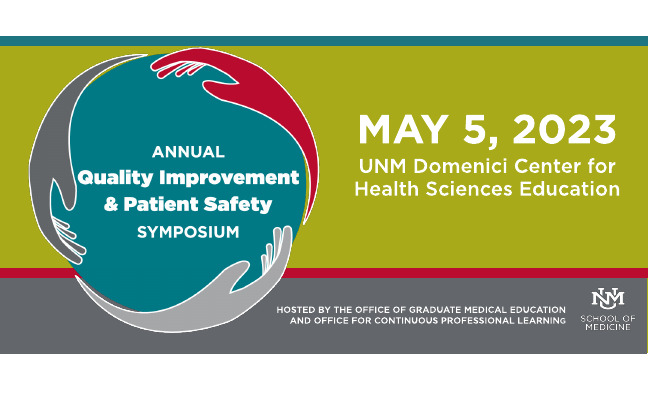Document Type
Poster
Publication Date
5-5-2023
Abstract
Problem (Gap) Identification/Background
Students, residents, and attendings report that delivering bad news is stressful.1 In a study of pediatric residents, only 27% reported that they felt comfortable delivering bad news to parents of a seriously ill child, though 90% perceived this to be a very important skill.2 Given that up to 10% of children can be expected to have a moderate or severe long-term health problem, this is a skill that should be developed during training.2 Additionally, reports have indicated that initial communication of bad news can negatively3 or positively4 affect adjustment to the diagnosis. If done well, the delivery of difficult news can reinforce and strengthen patient and caregiver connections with physicians.5 Currently, the UNM Pediatric Residency program does not have consistent and formal training for residents on how to deliver bad news.
Description of Intervention
This quality improvement project aimed to implement a workshop to train pediatric residents on how to deliver difficult news and subsequently improve residents’ basic knowledge and confidence in these clinical scenarios. We developed a curriculum for pediatric residents on difficult conversations during their half-day didactic. The workshop curriculum was divided into 2 parts: A 20-minute lecture was given by an experienced faculty member followed by a Batcave simulation lab where residents were divided into groups of four. During the simulation, four cases were role-played.
Data/Measures of Change
Residents took a pre-survey prior to the workshop to establish their baseline experience with these conversations. Pre-survey data from 29 pediatric residents showed 55% feel somewhat confident delivering difficult news, while 14% feel not at all confident. Post-survey data was collected from 24 residents immediately after the session and is currently being repeated at 3 months post-workshop.
Results
In comparing results from the pre-test and post-test survey, residents reported increased confidence in delivering difficult news and increased comfort in teaching how to deliver difficult news to junior residents and medical students. Additionally, residents reported that they plan to invest more time in the future to further master the skill of delivering bad news.
Acknowledgments
Thank you to Dr. Jennifer Sedler at Stanford for sharing and allowing us to use the first three cases.
Recommended Citation
Day, Morgan; Jodi Mayfield; Justin Hessinger; and Lanier Lopez. "Difficult Conversations: Practicing Delivering Bad News With Pediatric Residents Through Simulation Curriculum." (2023). https://digitalrepository.unm.edu/hsc_qips/76


Comments
Poster Presented at UNM Health Sciences Center Quality Improvement & Patient Safety Symposium 2023